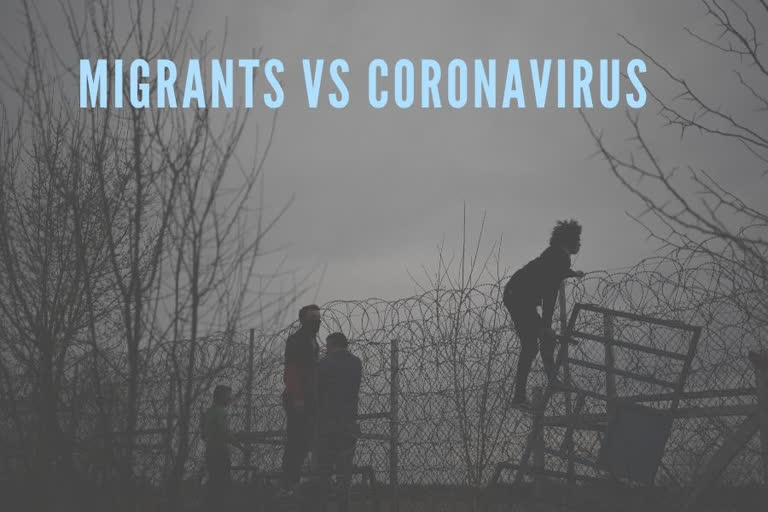Budapest: No entry, says Hungary. Not all at once, says Greece. Watch out, says Croatia: They might have the coronavirus.
This week, thousands of asylum-seekers sit at the intersection of a pair of fast-moving news stories — a spike in migration in Europe and uncertainty about the global spread of the new and sometimes deadly virus.
They have found themselves trapped between two worlds, at the mercy of political machinations and governments that are telling them in no uncertain terms: We don't want you here.
Worries about the potential spread of the new virus by migrants and refugees have also been mentioned as a risk factor by officials in Greece and Croatia. In varying degrees, they have identified migrants as security threats and — also in varying degrees — linked them directly to coronavirus fears.
Hungary has also suspended admitting asylum-seekers into a pair of transit zones on the Serbian border, where they file their asylum claims, because of the concerns about the spread of the coronavirus. Officials said the indefinite suspension was done to protect Hungary and the 321 asylum-seekers already in the transit zones.
Four cases of the new virus have been identified in Hungary thus far — including a pair of Iranian students who recently visited their homeland.
Read: China COVID-19 cases fall below 100 as world total crosses 1,00,000
Rights advocates in Hungary aren't happy with the approach. They say the government decision to bar asylum-seekers from the border transit zones was part of a “hate campaign demonizing refugees.”
“From the point of view of the epidemic risk, this is only an act to keep up appearances,” the Hungarian Helsinki Committee said in a statement. It noted that people applying for asylum at the transit zones have to wait in Serbia for extended periods, even years, before being allowed into the transit zones.
“No coronavirus testing is carried on travelers arriving from Serbia at the border crossing a few hundreds yards from the transit zone at Roszke,” the group said. As of midday Friday, Serbia had a single confirmed case of the new virus, a 43-year-old man who made several recent trips to Budapest.
Since asylum applications in Hungary can only be made in the transit zones, preventing migrants from entering the complexes built from shipping containers amounts to “the total denial of access to the asylum procedure,” the group said.
In Greece last week, before a migrant crisis on the border with Turkey began, Prime Minister Kyriakos Mitsotakis said he planned to step up border security in light of the new virus. He told a cabinet meeting that his approach was informed by the presence of migrants from Afghanistan and particularly Iran, where many cases have been reported. He also outlined plans to build new migrant detention centers on Greece’s eastern islands to replace existing ones that are overcrowded and squalid.
(AP)



